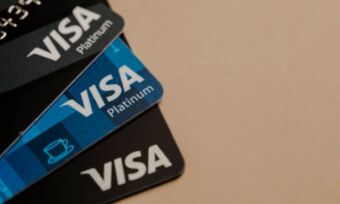Reward credit cards aren’t for everyone. Make sure you’re following these 5 rules and using your credit card the smartest and wisest way..
Working out which is the best credit card-based rewards program for you is not as straight forward as you may think. Used correctly, rewards can be worthwhile. After all, chances are you were going to spend that money anyway so why not get something back for it? On the flipside, a rewards card used wrongly can see you deeper in debt.
To avoid this, there are certain golden rules to follow.
1. Pay the card off in full
Firstly, be realistic about whether you pay your card off in full each month or not. As the interest rates on these cards may be higher than other credit cards, it?s best to pay them off quickly. Otherwise, you run the risk of the cost of the card (interest rate plus annual fee) outweighing any rewards benefit you may get. If you can?t pay your card off religiously, forget rewards and opt for a low-cost card instead.
2. Are the rewards offered suitable?
Consider if the frequent flyer rewards suit your travel needs. For example, if the card offers you a quick way to earn points for flights around Australia but you don?t travel domestically very often, ask yourself if this is a reward you are likely to use. Flights are only one aspect of rewards. You may prefer shopping vouchers, merchandise, travel or cash back.
3. Examine the fine print
Check the rules first. Before accruing points on a scheme that is hard to redeem points from, be aware of things like the lifespan of the points and any rules and restrictions about upgrading on flights.
4. Pick a card that matches your spend
Choose a rewards program that suits the amount of money you spend on the card every year and is likely therefore to give you the best return. To help you evaluate, we rate rewards programs according to three different yearly spend levels – $12,000, $24,000 and $60,000.
5. Maximize extra benefits
If you have a Gold or Platinum card and you are earning enough rewards to outweigh your annual fee, benefits such as travel insurance or concierge services effectively come free of charge. Sacrifice some time to read the product disclosure statement in detail so that you know exactly what is available and how you can make use of it to add to the value you get from being with that rewards program.
Remember to keep your rewards card in your wallet if:
- You will incur a surcharge by using your card
- You could drive a harder bargain by paying with cash
- You are simply buying to boost your points tally
- The purchase could mean there?s no way you can repay in full that month







